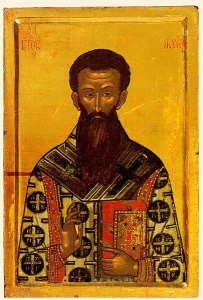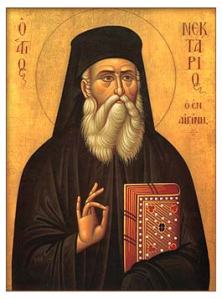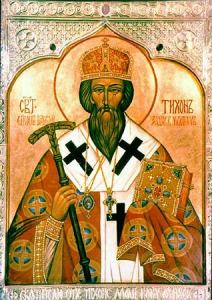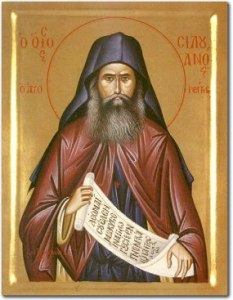 November 21st – The Presentation of the Blessed Virgin Mary / The Entrance of the Theotokos into the Temple.
November 21st – The Presentation of the Blessed Virgin Mary / The Entrance of the Theotokos into the Temple.
Since the Most Holy Virgin was brought into the temple to be instructed in the Lord, let us talk now about the benefit and necessity of going to the church of God as the house of God and place where we are raised for the Heavenly Fatherland.
We are called Christians, and we are all called by Jesus Christ to the Heavenly Fatherland, to be heavenly citizens, Divine inheritors, co-inheritors with Christ.
Our calling is very high, our duties are also just as important; our spirit should be very exalted, holy, meek, and humble.
Who will show us what makes up our Christian calling and duty, of what spirit we must be, and how we should behave ourselves in various life situations?
Who will give us the strength to live in the spirit of Christ—holy? The Church gives us all this. We can receive these spiritual powers in the temple of God through the Sacraments.
Here a heavenly, unearthly spirit hovers; here is the school of Jesus Christ, in which future heavenly citizens are educated.
Here you will receive heavenly lessons from the Divine Teacher, Jesus Christ, and the Holy Spirit in the Gospels.
Here is heavenly food and heavenly drink, spiritual, heavenly garments, and spiritual armaments against the enemies of salvation.
Here you will receive the peace that is a foretaste of heaven, so necessary to our spiritual activity and education, and strength for spiritual labors and struggle with sin.
Here we partake of sweet conversation with our Heavenly Father and the Most Holy Queen and Mother of God, with the angels of the Lord and saints.
Here we learn how to pray, and for what to pray. Here you will find examples of all the Christian virtues in the saints who are glorified each day by the Church.
Here, gathered together in the house of God, as children of one Heavenly Father, as members of the mystical body of Christ, we learn how to love one another—member loving member, as members of Christ, as Christ Himself.
See how beneficial, how necessary it is for a Christian to visit God’s church. It is a school of faith and piety founded by God, a sacred treasure According as His divine power hath given unto us all things that pertain unto life and godliness (2 Pet. 1:3), the treasury of all the Mysteries of Christ!
John of Kronstadt (1829-1908; Russian Orthodox): The House of God – Homily on the Day of the Entry of the Most Holy Theotokos into the Temple @ Pravoslavie.












